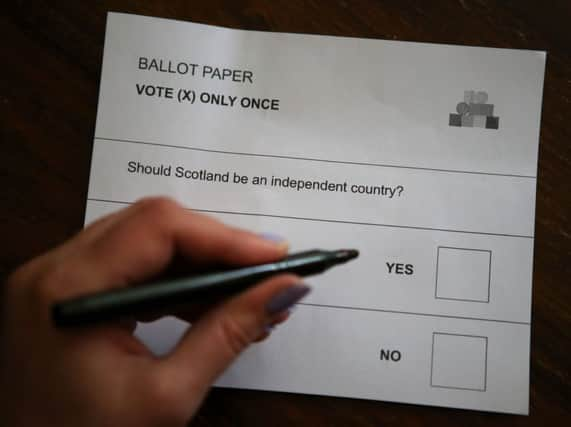Comment: Don’t let indyref fury affect workplace


THE referendum on independence may be over but just as with a major football cup final, there has been much post-match analysis. Happily, most mature football fans usually exchange opinion over the hot issues – blatant examples of gamesmanship, unfair penalty awards or biased refereeing – in a friendly manner, often over a few beers.
Analysis of the referendum, however, has often been hostile, as some of the comments on social media have proved. People who considered others to be their “friends”, both in real terms and in the more abstract sense (eg Facebook) have seriously fallen out over the issue. But what should employers do if this anger and resentment seeps into the workplace and leads some members of staff to claim that the working environment has become “hostile”?
Advertisement
Hide AdAdvertisement
Hide AdBasically, every employer has a duty to consider when a good-spirited disagreement between colleagues becomes something more sinister, especially if it raises the issue of workplace harassment by one employee towards another. Potentially, this could lead to the employer facing an employment tribunal claim for a failure to act in line with employment law – not to mention the possible effect on production of a general atmosphere of ill-feeling.
The starting point for employers is the Equality Act 2010, which protects members of their workforce from discrimination (including harassment) related to certain protected characteristics. One protected characteristic is “religion or belief”. A belief includes religious or philosophical beliefs. Harassment is defined as unwanted conduct from one employee to another which is related to a protected characteristic (ie religion or belief), and which has the purpose or effect of violating the employee’s dignity or creating an intimidating, hostile, degrading, humiliating or offensive environment.
Does this mean political views are covered? Case law seems to conclude that potentially it does.
In the leading case on the matter, the Employment Appeal Tribunal observed that a belief is one which must be genuinely held: it must be more than an opinion or viewpoint based on information; it must concern a weighty and substantial aspect of human life and behaviour; it must attain a level of cogency, seriousness, cohesion and importance; it must be worthy of respect in a democratic society and must be similar to a religious belief, at least in the sense of status or cogency.
Case law has established that while mere support for a political party is unlikely to constitute a protected belief, belief in a political philosophy or doctrine, such as Marxism or Capitalism, is covered. Against that backdrop, a belief in Scottish independence or being in favour of Scotland remaining part of the United Kingdom could potentially be protected as a belief under the Equality Act. Employers are vicariously liable for any acts of harassment carried out by employees in the course of employment. The phrase “in the course of employment” is widely interpreted by the courts and can include social media postings between employees. Employers could potentially face claims if “referendum banter” strays into the realms of harassment whereby an individual goes too far and creates an intimidating, offensive or hostile environment.
The definition of harassment refers to the “purpose or effect” of the unwanted conduct. Even if the discussion is intended as banter, harassment can still be committed where there is no intention to offend. The legal test considers the effect of the conduct, looking at the “victim” subjectively.
Employers can potentially avoid claims if they are able to demonstrate they took “all reasonable steps” to prevent such behaviour taking place. Some farsighted employers will have already issued policies or guidelines, setting the goalposts for acceptable levels of communication on the hot topic that is the referendum. Such an approach could well assist in defending any claims in the event bullying and harassment did take place.
One thing is certain; employers are strongly advised not to ignore complaints about harassment resulting from differences over the indyref result. Dismissing this as “just banter” could cost them dear.
• Jack Boyle is a senior solicitor with Blackadders, www.blackadders.co.uk